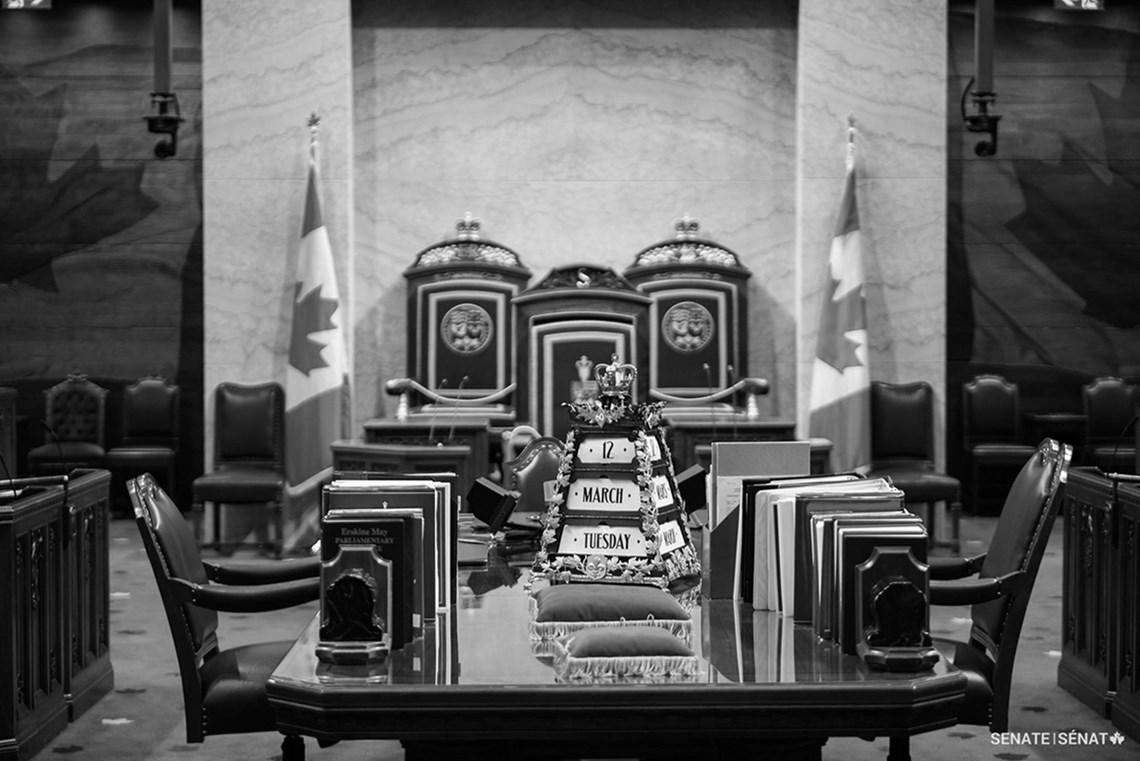Interpretation
Definitions
3. (1) The following definitions apply in this Code.
Committee means the Committee designated or established under section 35. (Comité)
common-law partner means a person who is cohabiting with a Senator in a conjugal relationship, having so cohabited for at least one year. (conjoint de fait)
harassment and violence has the same meaning as in the Senate Harassment and Violence Prevention Policy, as amended from time to time (harcèlement et violence)
Intersessional Authority on Ethics and Conflict of Interest for Senators means the committee established by section 38. (autorité intersessionnelle)
parliamentary functions has the same meaning in the Senate Administrative Rules. (fonctions parlementaires)
Senate Ethics Officer means the Senate Ethics Officer appointed under section 20.1 of the Parliament of Canada Act. (conseiller sénatorial en éthique)
spouse means a person to whom a Senator is married but does not include a person from whom the Senator is separated where all support obligations and family property have been dealt with by a separation agreement or by a court order. (époux)
Family Members
3. (2) The following are the family members of a Senator for the purposes of this Code:
(a) a Senator’s spouse or common-law partner; and
(b) a child of a Senator, a child of a Senator’s spouse or common-law partner, or a person whom a Senator treats as a child of the family, who
(i) has not reached the age of 18 years, or
(ii) has reached that age but is primarily dependent on a Senator or a Senator’s spouse or common-law partner for financial support.
For Greater Certainty
3. (3) For greater certainty, a Senator who is on leave of absence, suspended or absent due to illness is required to comply with all requirements and obligations under the Code.

